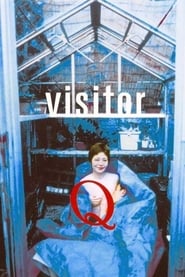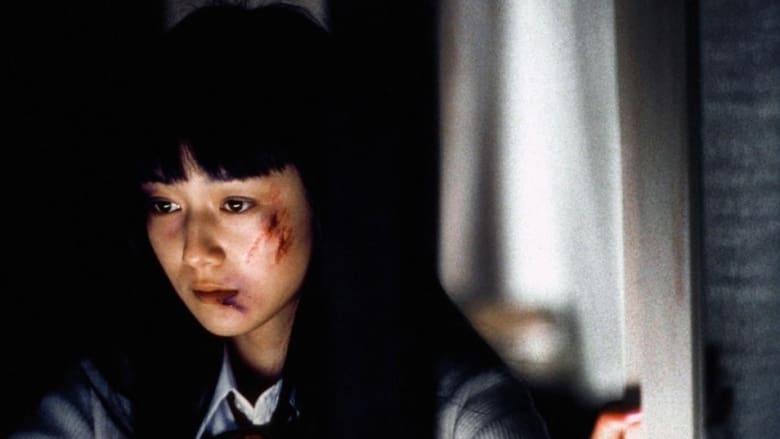“Visitor Q” is a disturbing and surreal Japanese film that explores the dysfunction of a family, with elements of violence and sexual abuse. A mysterious man brings chaos to their lives, leading them to confront their darkest desires. The movie is a graphic portrait of a broken family, exposing the ugliness beneath the surface. It’s an intense and unsettling experience that leaves a lasting impression.

CLICK HERE⭣⭣⭣🎦_Watch Visitor Q 2001 English Subtitles_
Review
In the midst of a tumultuous society, where fear and chaos become the norm, the movie “Visitor Q” appears as an innovative and captivating production. Renowned for its unconventional approach to storytelling, this work tackles delicate themes such as family dysfunction, social alienation, and the human capacity for violence.
Directed by Takashi Miike in 2001, this film follows the troubled life of a Japanese family struggling with various issues. The father is a TV journalist obsessed with interviewing strangers to fulfill his own desires. The mother is a prostitute who welcomes customers at home while trying to cope with her emotional scars. The son is a bullied teenager tormented by his classmates and filled with anger towards his family. And finally, the daughter is a drug-addicted schoolgirl who seeks comfort in self-harm practices.
As the plot unfolds, a mysterious visitor arrives at their doorstep, forcing them to confront their inner demons and re-evaluate their relationships. The visitor brings bizarre gifts such as a video camera that captures people’s memories or breast milk that acts as a drug substitute. Despite their initial shock and rejection of him, he manages to become part of their twisted dynamics and triggers unexpected changes.
The film’s cast includes some remarkable actors such as Ken’ichi Endô as the father, Shungiku Uchida as the mother, Jun Mutô as the son, Fujiko as the daughter, and Kazushi Watanabe as Visitor Q. They deliver outstanding performances that convey raw emotions and complex characters.
One notable aspect of “Visitor Q” is its use of shock value and black humor to expose societal taboos. From disturbing scenes such as incestuous sex to graphic violence towards animals or humans, this movie pushes boundaries without remorse or apology. It also employs surrealistic elements through dream sequences or hallucinations that blur reality and fantasy.
Despite its controversial nature, “Visitor Q” gained recognition among cinephiles worldwide and became a cult classic. Its philosophical and psychological undertones, combined with its experimental style, generated debates and interpretations that go beyond the surface level. It also reflects the director’s vision of challenging mainstream expectations and conventions.
The film’s score, composed by Koji Endô, adds to its eerie ambiance with a mix of electronic sounds and traditional Japanese instruments. It complements well the cinematography, which features handheld shots, close-ups, and unconventional angles that immerse the audience in the characters’ perspective.
“Visitor Q” did not receive many awards or nominations, due to its divisive reception and limited distribution. However, it remains a significant example of Japanese Cinema’s diversity and innovation in the 21st century.
One of the most memorable scenes in “Visitor Q” involves the father interviewing an elderly man about his sexual fetishes. The dialogue is both cringe-worthy and hilarious at the same time, revealing how absurd human desires can be when expressed openly.
Another remarkable aspect of this movie is how it portrays dysfunctional families as a microcosm of a sick society. The characters represent different aspects of modern life that are plagued by isolation, addiction, trauma, or obsession. They serve as warning signs for what could happen when one loses touch with reality or morality.
However, some critics argue that “Visitor Q” goes too far in its exploration of taboo subjects. They claim that it glorifies violence and condones immoral behavior under the guise of artistry or freedom of expression. They also point out that some scenes are gratuitous or unnecessary for the plot’s development.
Overall, “Visitor Q” is a must-watch for anyone interested in avant-garde cinema or Japanese culture. Its unapologetic approach to controversial themes challenges audiences’ preconceptions and stimulates critical thinking. While it may not be suitable for everyone’s taste or sensitivity levels, it remains an influential work that opens new doors for artistic expression. As George Orwell once said, “In a time of universal deceit, telling the truth is a revolutionary act.” And “Visitor Q” does just that.
Technical Data

- Runtime : 84
- Release : 2001-03-17
- Genre : Comedy, Drama, Horror, Thriller
- Cast : Kenichi Endo as Kiyoshi Yamazaki / Father, Shungicu Uchida as Keiko Yamazaki / Mother, Kazushi Watanabe as The visitor, Jun Mutô as Takuya Yamazaki / Son, Fujiko as Miki Yamazaki / Daughter
- Crew : Takashi Miike as Director, Koji Endo as Original Music Composer, Yasushi Shimamura as Editor, Itaru Era as Writer, Reiko Arakawa as Producer
- Popularity 14.094
- Budget : $60,400
- Revenue : 0
- Company : CineRocket, Trustech Japan Co., Ltd.
- Summary : In a dysfunctional family where the mother is a heroin addict and prostitute, beaten by her son, and the father is an ex-TV reporter, sleeping with his daughter and filming his son being beaten up, ‘Q’, a complete stranger enters the bizarre family, changing their lives for the better, finding a balance in their disturbing natures.
- Tagline : The only thing stranger than this family is… Visitor Q.
